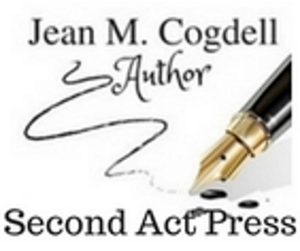J= Jargon
- Speech or writing having unusual or pretentious vocabulary, convoluted phrasing, and vague meaning.
- Slang or Lingo
- Language used by a group, profession, or culture, not words and phrases are not understood or used by other people.
Not everyone understands tech-talk.
Make sure your writing speaks to a broad audience, not a select few. Believe it or not, there are still a few people who do not use computers.
A ransom note filled the screen. The sender wanted five-thousand dollars. Her computer was under attack. Rachel hit delete and the next email popped up repeating the threat.

What the hell? With each click, the threat reappeared. She couldn’t close her email. The computer now belonged to someone else.




Jargon seems to be the quickest way to assure your writing won’t be timeless. But I don’t see a problem with Southernisms. (Partly because I’m a Southerner.) People still read Huckleberry Finn, etc. I had a little trouble with the Britishism “Bob’s your uncle!”, but it was fun to research. But techno-babble is a quick turnoff for me. Tom Clancy could pull that off, but he was writing in a genre that required it.
LikeLiked by 1 person
Glad to meet another Southerner. I too have difficulty with UKisms but love watching BBCA. Thanks for commenting.
LikeLiked by 1 person
A good point. Computers aren’t the only source of jargon, but possibly one of the biggest sources of linguistic gulf in the modern world.
A good rule of thumb for this sort of thing is to introduce important new terms at most every few sentences, and when you first use each one, include enough context so that the reader can understand what the word means and why it’s important to the character (how they’d use it, etcetera.)
LikeLiked by 1 person
Good ideas. Of course some of the most overused jargon is Southern Slang, IMO. So glad you took the time to comment. Thank you,
LikeLike
Oh-oh. Do you call that a revolt or an ambush? Feels creepy. ❤
LikeLiked by 1 person
Glad you’re into this series. LOL
LikeLike
I like your theme. ❤ ❤
LikeLiked by 1 person
ooh, intriguing! Good one.
LikeLiked by 1 person
I’m blushing
LikeLiked by 1 person